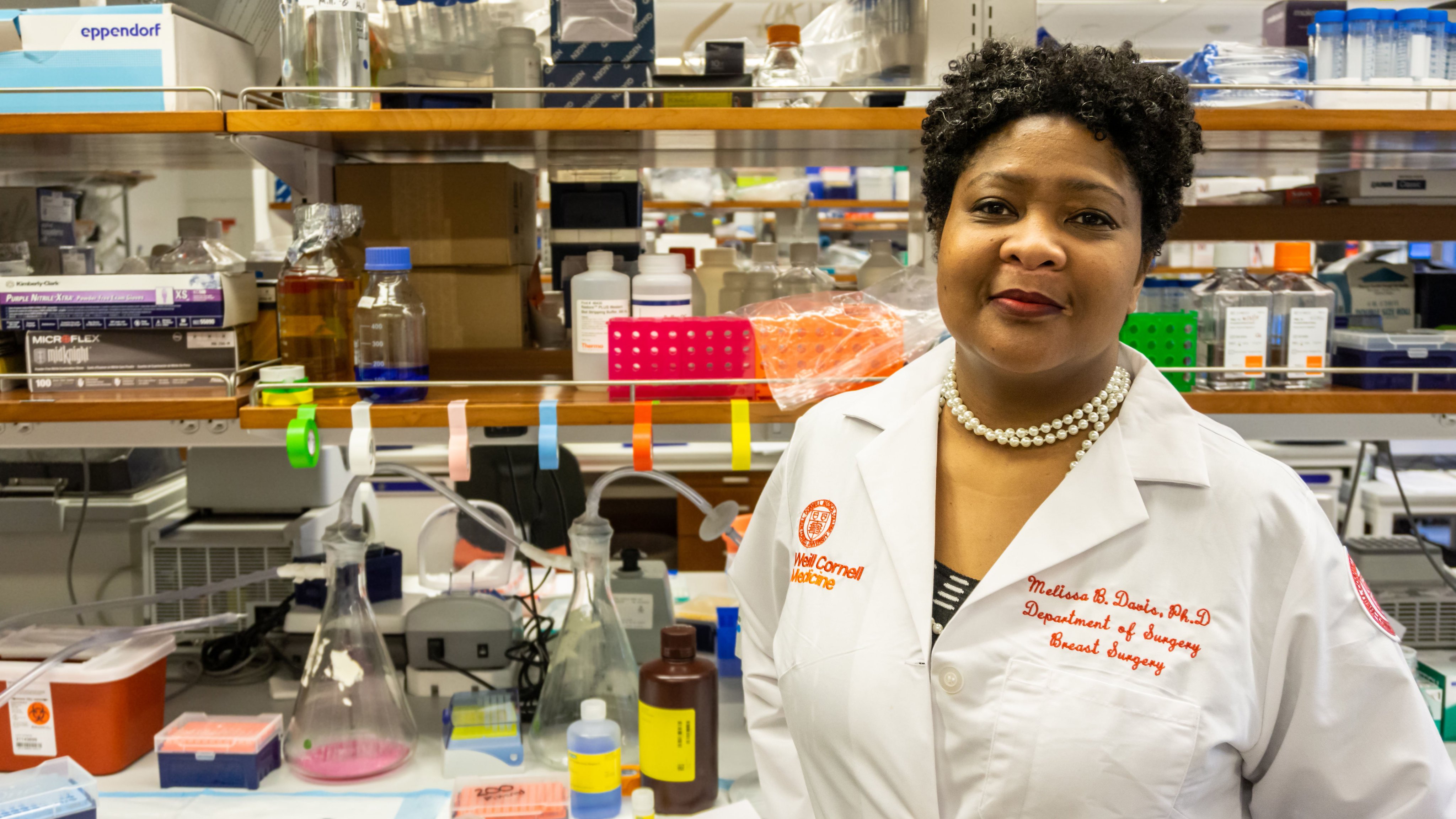
Opening Plenary highlights bench-to-bedside aspects of research and clinical treatment
The American Association for Cancer Research Annual Meeting’s Opening Plenary Session: Discovery Science Driving Clinical Breakthroughs featured a broad range of topics—from cutting-edge cell tracking research to advances in our understanding of tumor metabolism to clinical targeting in ethnically diverse populations—illustrating the translational path from basic science discovery to practice-changing treatment.
Genomic sequencing in diverse populations
Over the past decade, genomic advancements have afforded tremendous opportunities in cancer research, said [Englander Institute for Precision Medicine member] Melissa B. Davis, Ph.D., Weill Cornell Medical College. But despite these advances, disparities in cancer outcomes persist as does a paucity in data to understand the breadth of diversity in tumor traits across populations.

EIPM Member Melissa B. Davis, Ph.D.
Most of the data that defines current understanding of cancer genetics was generated within the context of European ancestry. This bias is partially due to geographic convenience of recruitment within the proximity of the institutions that generate these data elements.
Davis issued a “call to action” emphasizing the importance of including not only the genetic history (ancestry) but also the social history (self-reported race) of cancer patients.
“This multidisciplinary approach will unlock our understanding of the drivers of aggressive tumor biology and be a catalyst for implementation of customized prevention and survivorship interventions,” she said. “Only with the power of inclusion can we hope to traverse the breadth of disparities and make leaps of progress in cancer research and treatment.”
# # #
The above article first appeared on the AACR News website on April 12, 2021.
